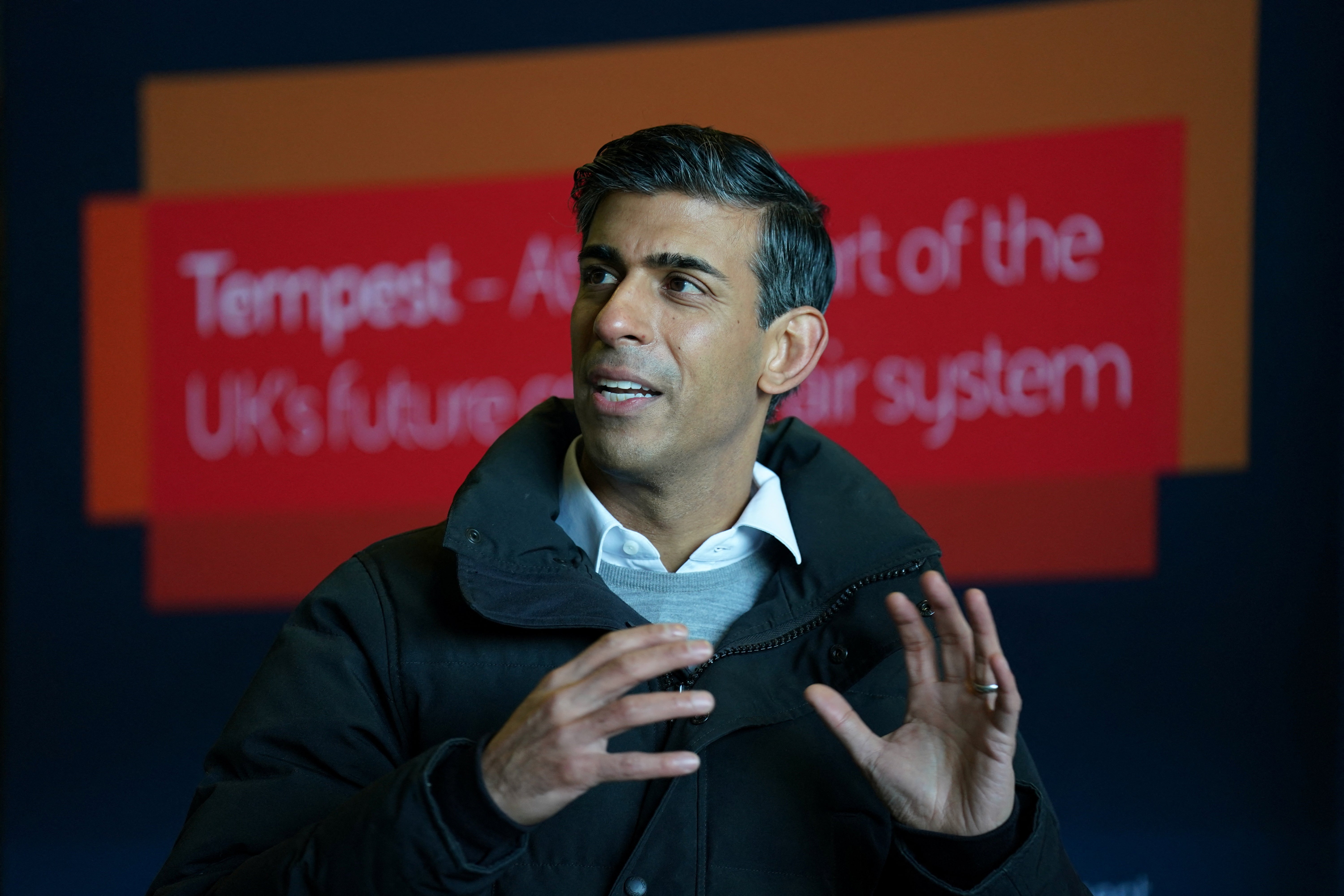Rishi Sunak’s asylum plan poses a problem for Keir Starmer
The issue for the leader of the opposition is that he agrees with most of it, writes John Rentoul


With the possible exception of the Rwanda policy, today’s statement from the prime minister could have been delivered by Tony Blair. Given some of his recent positions, it could even have been delivered by Keir Starmer.
A Labour prime minister, having consulted the focus groups, might also have opened such a statement by talking of “the balancing of our duty to support people in dire need with the responsibility to have genuine control of our borders”. Such a prime minister could have spoken of our “proud history of providing sanctuary to those most in need” and could have said: “Britain helped craft the 1951 Refugee Convention to protect those fleeing persecution.”
A Labour occupant of No 10 might even have been tempted to proclaim our openness to people from Hong Kong, Afghanistan and Ukraine in similarly schmaltzy terms: “Thousands of families will be setting extra places around the Christmas table this year. No one can doubt our generosity of spirit.”
Which posed a problem for Starmer when he rose to reply. He complained that the asylum system “can’t process claims, can’t return those with no right to be here, and can’t protect our borders”, which were precisely the problems that Sunak had come to the Commons to solve.
In fact, Starmer had almost in passing hit on what might well be the weak link in the government’s plan, namely the removal of so few people whose claims for asylum have been rejected. If the agreement with Albania holds, Sunak may actually succeed in returning failed asylum seekers there, at least.
And the prime minister certainly seemed to be across the detail, in a way that has been alien to British politics during the Boris Johnson years. Chris Bryant was not the only opposition MP to be surprised to receive a crisp and detailed answer to what he thought was a difficult question.
So Starmer was reduced to welcoming the commitment to fast-track clearly unfounded claims. “This is what Labour has been calling for,” he said. Which is true, up to a point. The last Labour government had a “white list” of safe countries, from which asylum claims would be automatically rejected – until the courts ruled that this was unlawful because each application has to be considered on its own merits.
Two weeks ago, it was reported that Suella Braverman, the home secretary, wanted to revive the policy. In fact, all she is proposing is to issue new guidance to asylum case workers making it “crystal clear” that Albania is a safe country, as the prime minister put it. Funnily enough, that was what Yvette Cooper, the shadow home secretary, called for on Friday last week.
Starmer had so little to say that he fell back on asking whether the backlog of asylum claims would be cleared by the end of next year, when the prime minister had just said that it would be cleared by the end of next year. Conservative MPs, who had been paying close attention to this strikingly ambitious target, erupted at Starmer: “He’s just said it!” The Labour leader sulkily responded: “I know he’s said it; we need clarity on that.”
The end of next year is pretty clear: the question is whether the target has the remotest prospect of being met. But Starmer could hardly criticise it for being too ambitious – it is worth noting that the prepared text of his reply assumed that the backlog would be cleared by “the end of the parliament”.
Starmer may secretly think, “That is never going to happen”. Indeed, he may secretly hope that it won’t happen, because then the ringing Tory cheers that Sunak enjoyed this afternoon will sound the knell for the prime minister’s hopes of re-election.
This fast-tracking was the fifth point of a five-point plan, which sounded very Gordon Brown, and the only part that Starmer disagreed with was the resumption of attempts to fly asylum seekers to Rwanda. (The prime minister sounded confident that the legal challenges to the Rwanda policy, which are still before the courts, will fail.) Starmer called the Rwanda plan “unworkable” and “unethical”, but the thinness of Labour’s alternative was embarrassingly evident as he said the party had a “proper plan to crack down on the gangs”, and sat down.
Sunak commented that the brevity of Starmer’s response “speaks for itself”. Starmer is in the awkward position of agreeing with most of what the government proposes, while hoping it will fail – because if Sunak succeeds on this, the next election will suddenly seem competitive again.






Join our commenting forum
Join thought-provoking conversations, follow other Independent readers and see their replies
Comments